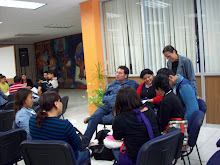 Today is Monday, Aug. 11, the 224th day of 2008 with 142 to follow.
Today is Monday, Aug. 11, the 224th day of 2008 with 142 to follow. The moon is waxing. The morning stars are Neptune and Uranus. The evening stars are Mercury, Jupiter, Venus, Mars and Saturn.
This Day in History, August 11 On August 11th, 1711, the first race was held at Ascot.
Other Notable Events, August 11 In 1877, Thomas Edison described the fundamentals of the phonograph to an assistant and instructed him to build the first one.
Also in 1877, American astronomer Asaph Hall discovered the two moons of Mars, which he named Phobos and Deimos.
In 1934, the first group of federal prisoners classified as "most dangerous" arrived at Alcatraz Island, a 22-acre rocky outcrop 1.5 miles offshore in San Francisco Bay.
In 1954, a formal announcement ended the seven-year war in Indochina between France and forces of the communist Viet Minh.
In 1965, riots began in the Watts section of Los Angeles. In six days of violence, 34 people were killed.
In 1984, in an off-air radio voice check picked up by TV cameras, U.S. President Ronald Reagan joked, "My fellow Americans, I'm pleased to tell you today that I've signed legislation that will outlaw Russia forever. We begin bombing in five minutes." The Kremlin wasn't amused.
In 1991, a Lebanese terrorist group, the Revolutionary Justice Organization, released U.S. hostage Edward Tracy, held captive since October 1986.
In 1992, an electrical fire in the 62-story John Hancock office tower forced more than 3,000 workers in Boston's tallest building to flee down smoky, darkened stairwells.
In 1993, U.S. President Bill Clinton endorsed the "Brady Bill" handgun control measure and signed an executive order banning the import of semiautomatic assault-style handguns.
Also in 1993, U.S. President Bill Clinton named Army Gen. John Shalikashvili to be the chairman of the Joint Chiefs of Staff, succeeding the retiring Gen. Colin Powell.
In 1994, major league baseball players went on strike following the conclusion of the day's games.
In 1995, the U.S. Supreme Court rejected a request by The Citadel to overturn a federal appeals court ruling that ordered the all-male South Carolina military college to admit female students.
In 1997, U.S. President Bill Clinton became the first president to use the line-item veto, a power granted by Congress the year before.
In 1998, two boys were found to be "delinquent," or guilty, of murder in the fatal March shootings of four students and a teacher at their middle school in Jonesboro, Ark.
Also in 1998, British Petroleum announced it would merge with Amoco Corp. in what would be the largest takeover of an American company by a foreign company.
In 1999, U.S. President Bill Clinton offered to commute the prison sentences of 16 Puerto Rican terrorists if they agreed to renounce violence and comply with other parole requirements.
Also in 1999, the Kansas State Board of Education voted to drop the theory of evolution from the public school curriculum.
In 2002, US Airways, the nation's sixth-largest airline, filed for bankruptcy.
In 2003, as peacekeepers entered Monrovia, the capital of Liberia, to try to stop fighting between government and rebel troops, President Charles Taylor stepped down and flew into exile in Nigeria, ending a bloody chapter of African history. He vowed he would return.
In 2004, fighting in the holy Iraqi city of Najaf raged for the sixth straight day between forces loyal to radical Shiite cleric Moqtada Sadr and U.S.-backed Iraqi troops.
In 2005, right-wing activists staged one of the biggest demonstrations in Israel's history at Tel Aviv. An estimated 350,000 people protested the impending withdrawal from the Gaza Strip and the evacuation of four settlements in the northern West Bank.
Also in 2005, Salva Kit Mayandit was sworn in as Sudan vice president succeeding John Garang, whose death in a helicopter crash touched off violent rioting in which 130 people were killed.
In 2006, the U.N. Security Council unanimously adopted a resolution calling for "full cessation of hostilities" between Israel and Hezbollah forces in Lebanon.
In 2007, the Evangelical Lutheran Church in America voted to refrain from disciplining members of the clergy involved in same-sex relationships.
Also in 2007, the Taliban reportedly promised to release two of the 21 South Korean missionaries held in Afghanistan as a gesture of good faith but later reneged on its offer.
Notable Birthdays for August 11 Those born on this day include:
- Author Robert Ingersoll in 1833
- Songwriter Carrie Jacobs Bond ( I Love You Truly ) in 1862
- Art collector Joseph Hirshhorn in 1899
- Actor Lloyd Nolan in 1902
- Author Alex Haley in 1921
- Singer June Hutton in 1920
- TV host Mike Douglas in 1925
- Actress Arlene Dahl in 1928 (age 80)
- Columnist Marilyn vos Savant, listed in the Guinness Book of Records as having the world's highest IQ (reported at 228), in 1946 (age 62)
- Pop singer Eric Carmen, formerly of the Raspberries, in 1949 (age 59)
- Apple computer co-founder Stephen Wozniak in 1950 (age 58)
- Professional wrestler/actor Hulk Hogan, born Terry Gene Bollea, in 1953 (age 55)
Copyright 2008 by United Press International


























